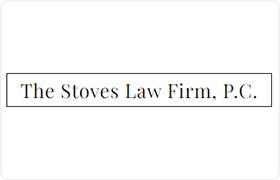Helena Misdemeanor Lawyer, Alabama
Sponsored Law Firm
-
 x
x

Click For More Info:
-
The Stoves Law Firm, P.C.
9 Office Park Cir Suite 105 Birmingham, AL 35223» view mapCriminal Defense Legal Expertise You Can Rely On
The Stoves Law Firm, P.C. provides outstanding Criminal Defense and Litigation services to individuals and businesses throughout the State of Alabama.
800-818-9390
Not enough matches for Helena Misdemeanor lawyer.
Below are all Helena Criminal lawyers.
James Campbell Pino
✓ VERIFIEDFelony, Family Law, Personal Injury, DUI-DWI
With over 46 years of active trial experience, attorney Jim Pino has earned a solid reputation within the legal community for well-prepared and aggres... (more)
Allen M Shabani
Divorce & Family Law, Criminal, Accident & Injury, Litigation
Status: In Good Standing Licensed: 14 Years
Justin Neal Smitherman
Real Estate, Criminal, Bankruptcy & Debt, Accident & Injury
Status: In Good Standing Licensed: 12 Years
Jeffrey Bryan Pino
Estate, Personal Injury, Litigation, Criminal, Family Law
Status: In Good Standing Licensed: 17 Years
Foster D. Key
Alimony & Spousal Support, Adoption, Criminal, Animal Bite
Status: In Good Standing Licensed: 30 Years
Harry Emmanuel Scozzaro
Estate, Divorce & Family Law, Criminal, Accident & Injury
Status: In Good Standing Licensed: 21 Years
John Martin Eades
Immigration, Divorce & Family Law, Criminal, Bankruptcy & Debt
Status: In Good Standing Licensed: 25 Years
Douglas L. Key
Adoption, Alimony & Spousal Support, Animal Bite, Criminal
Status: In Good Standing Licensed: 50 Years
Frank Wilson Myers
Criminal, Immigration, Felony, DUI-DWI
Status: In Good Standing Licensed: 25 Years
 Jay Stoves Birmingham, AL
Jay Stoves Birmingham, AL Practice AreasExpertise
Practice AreasExpertise


